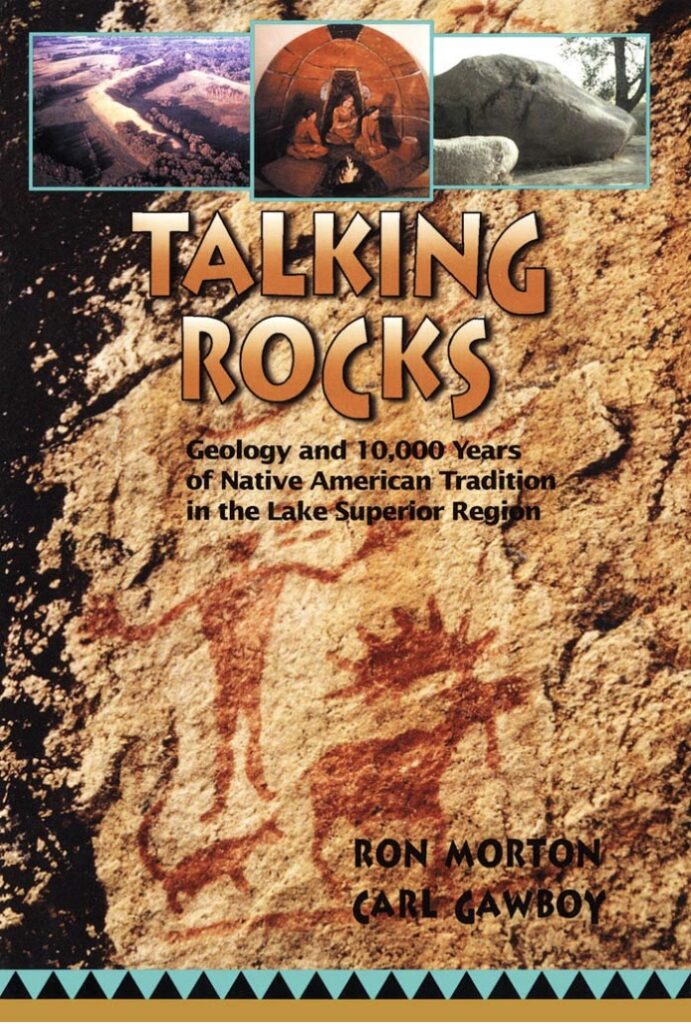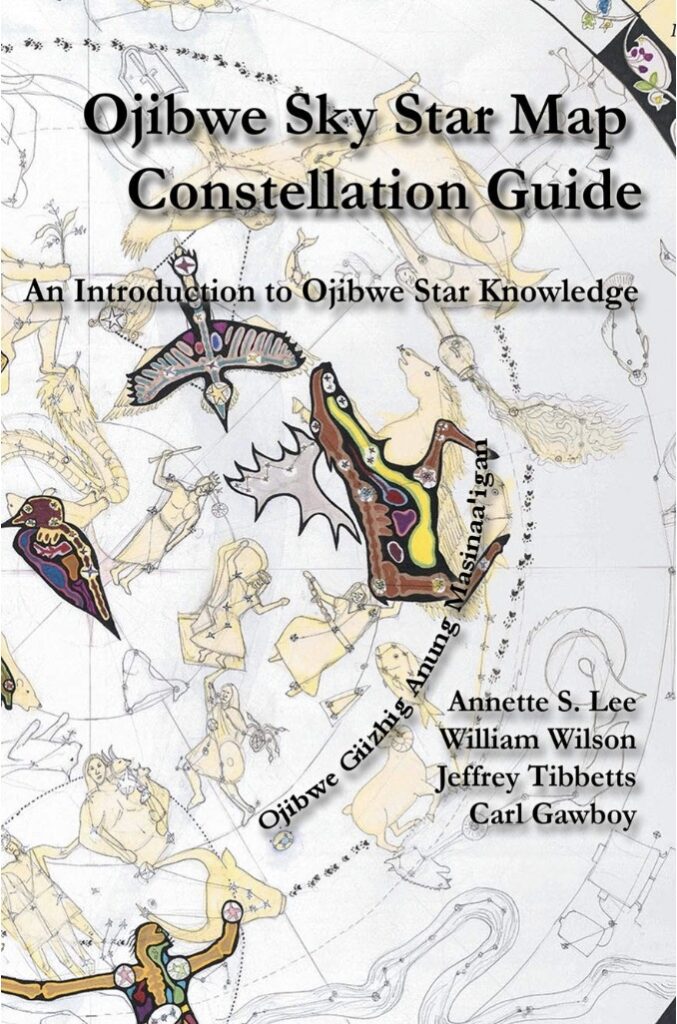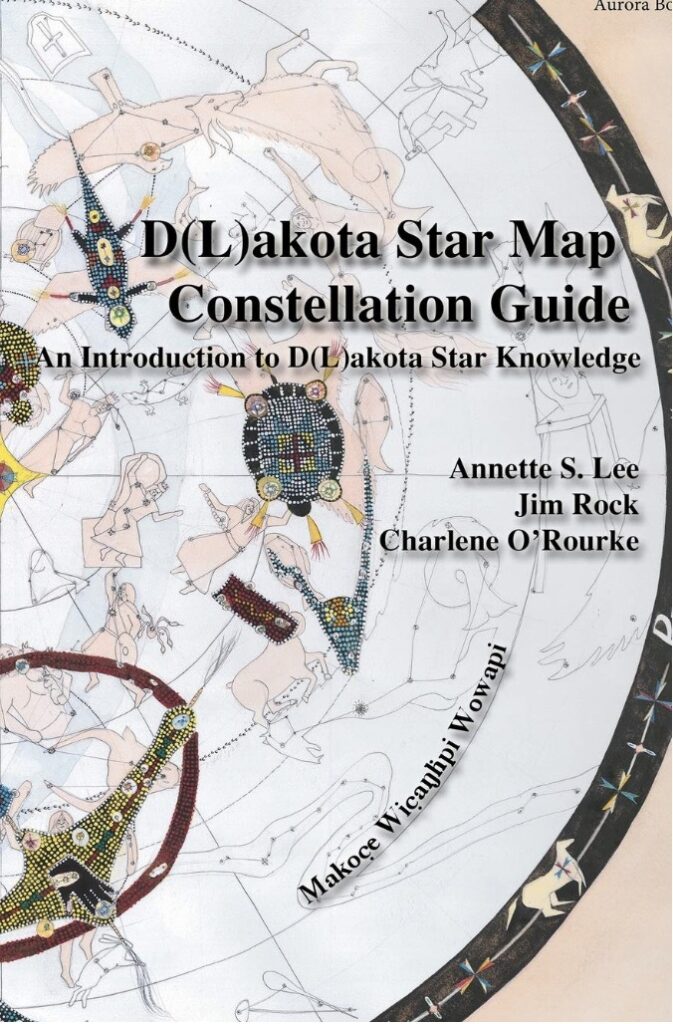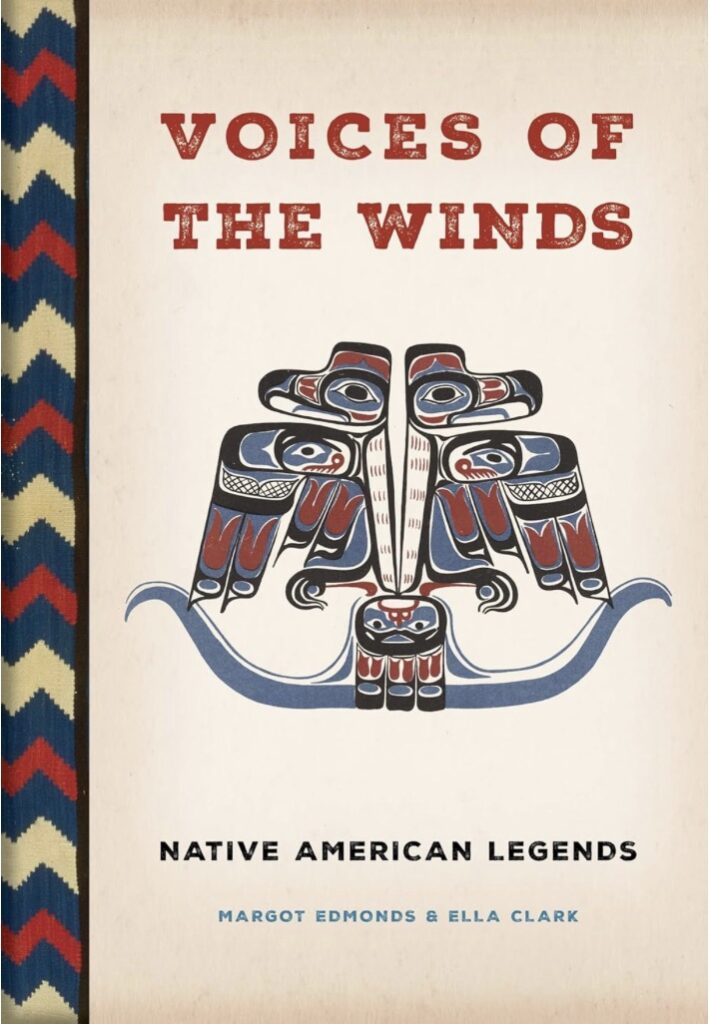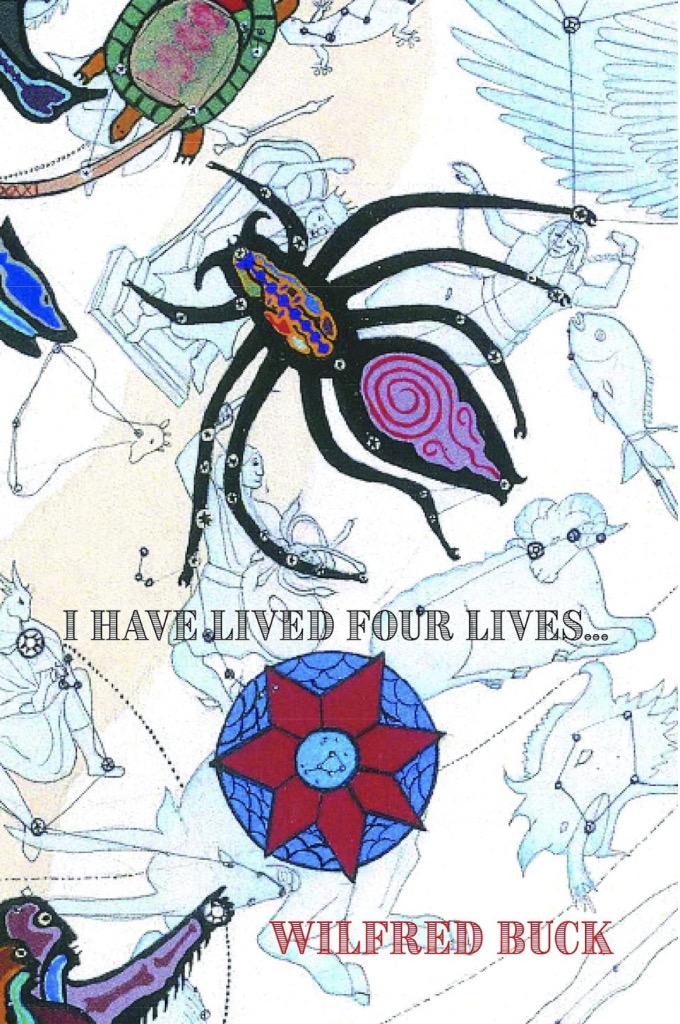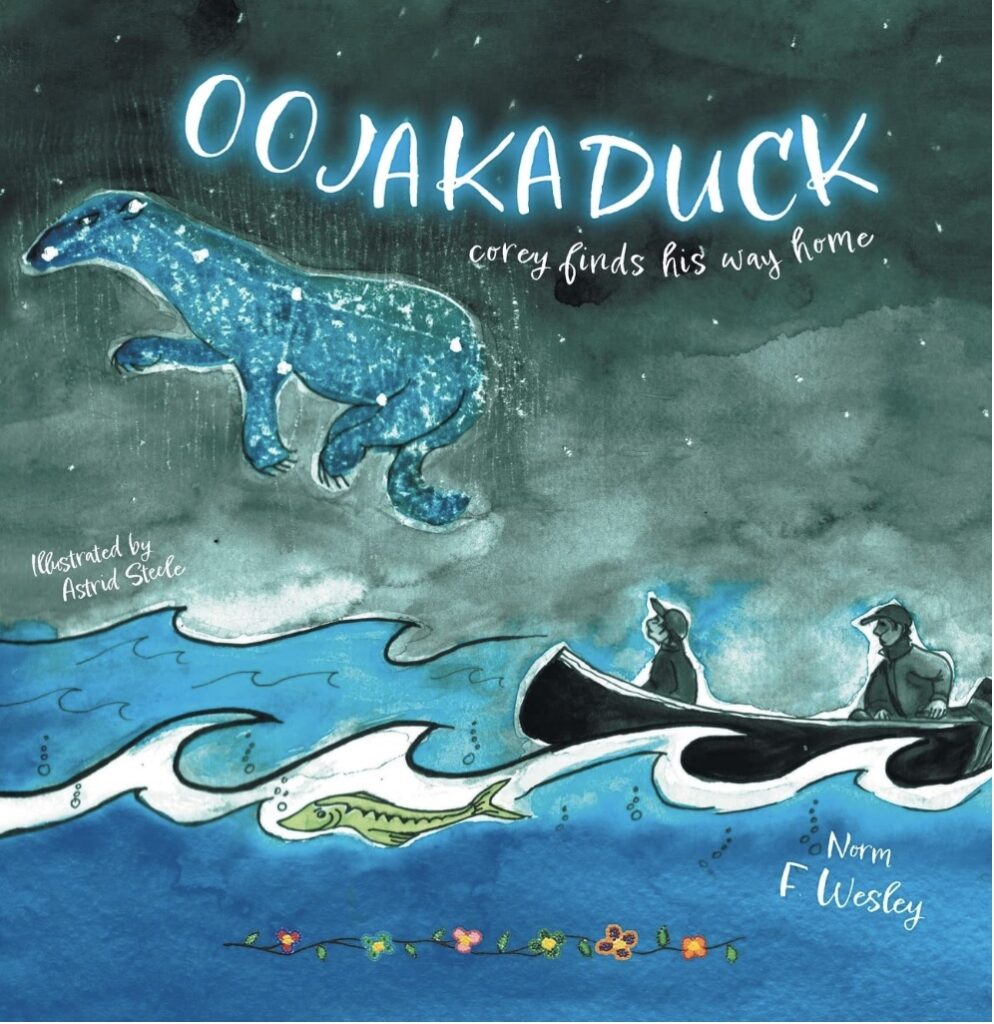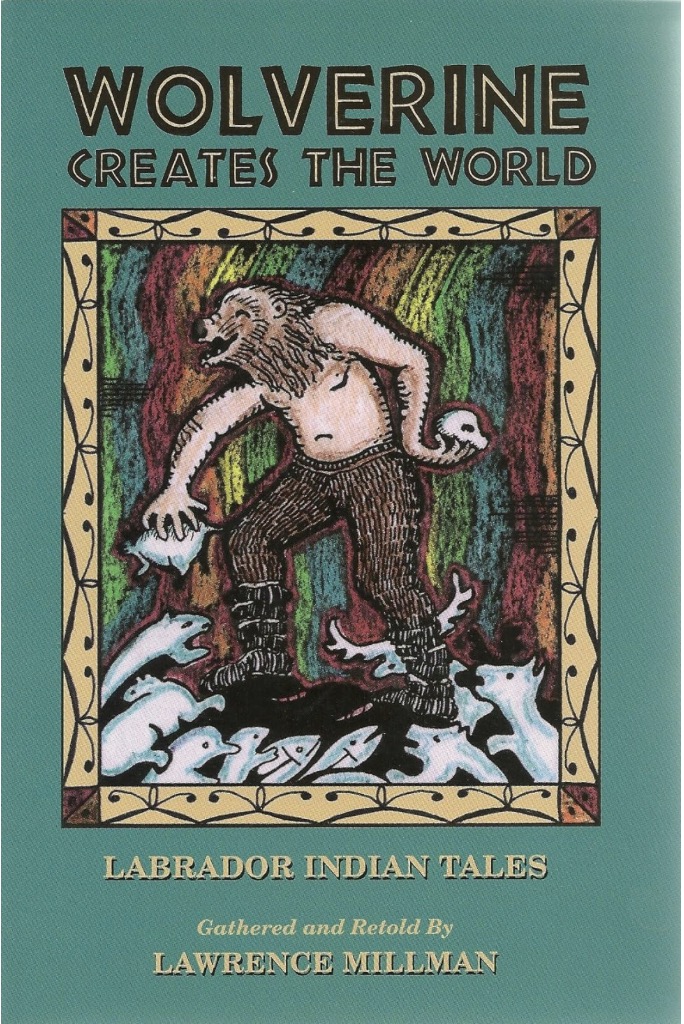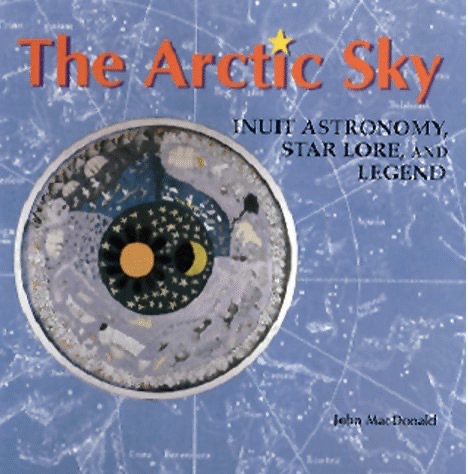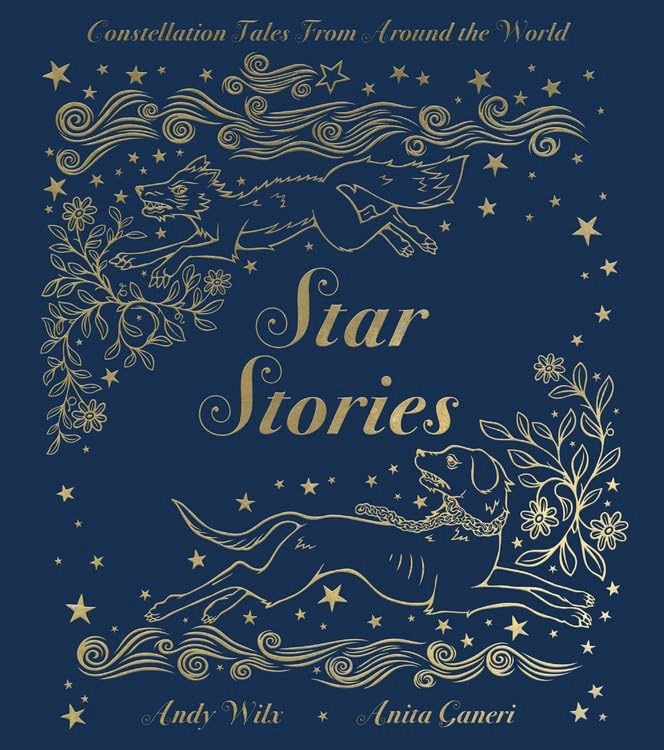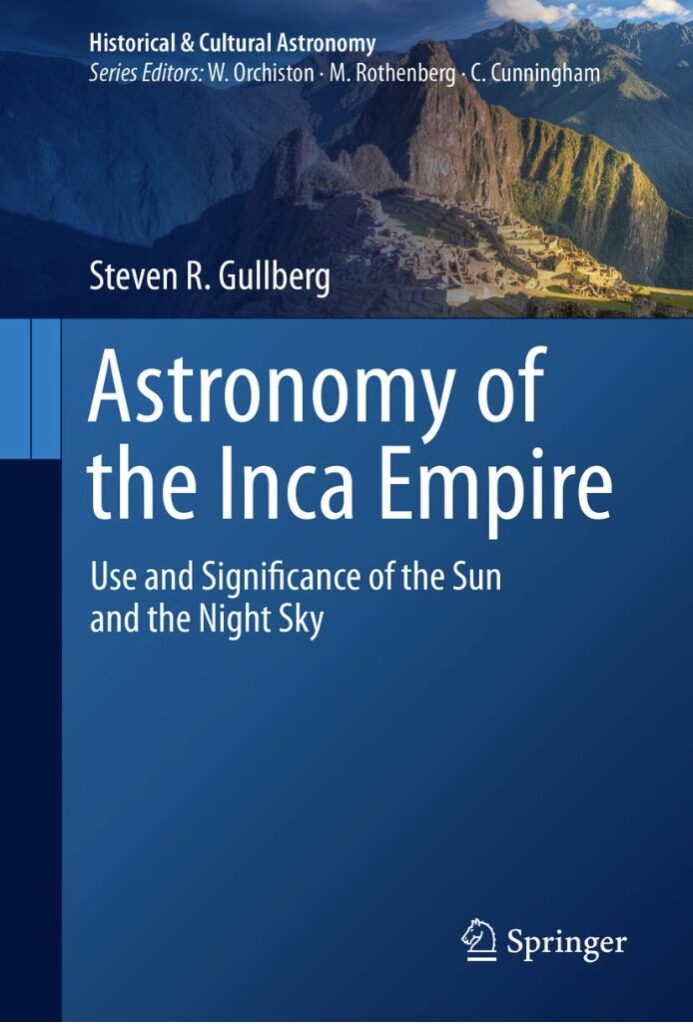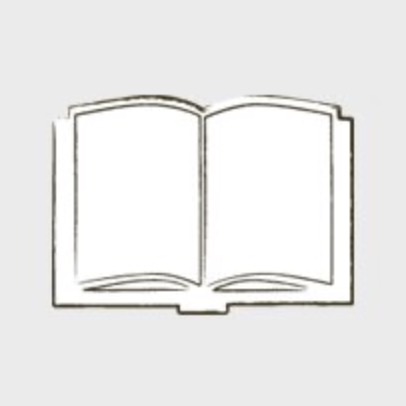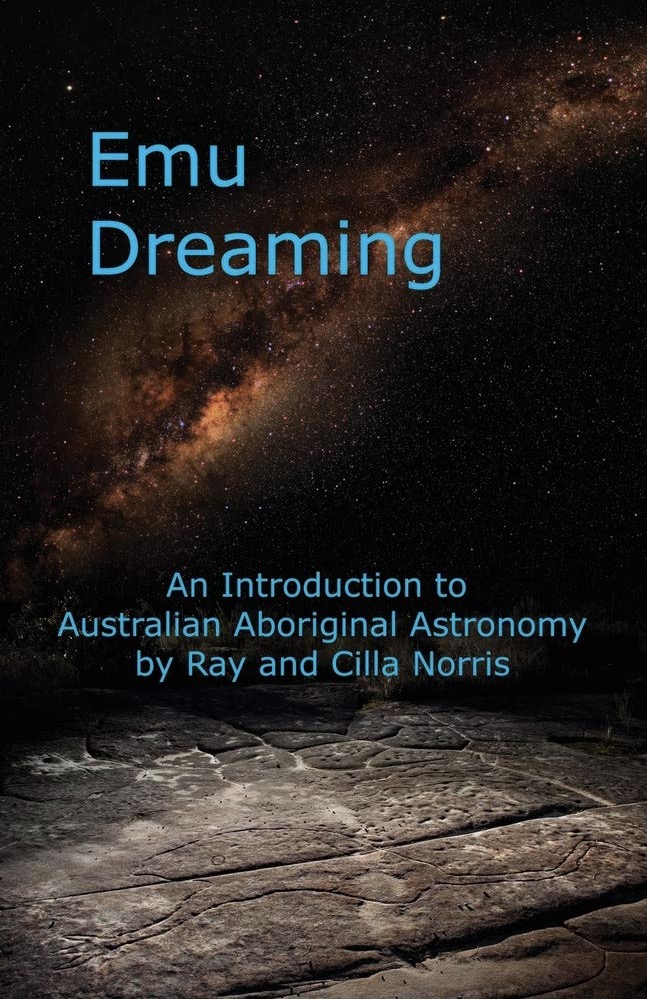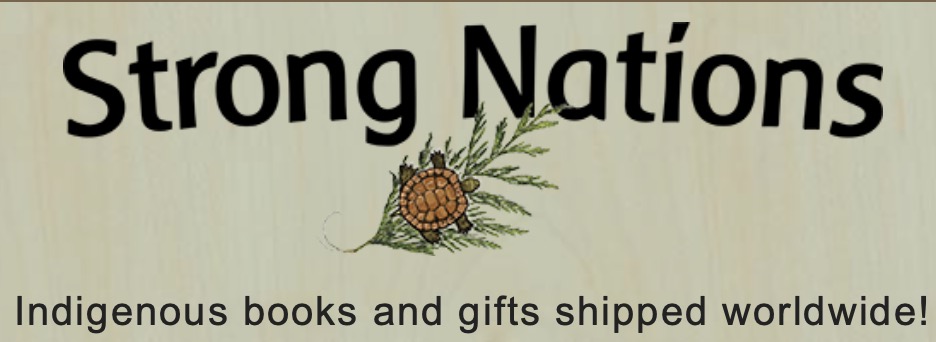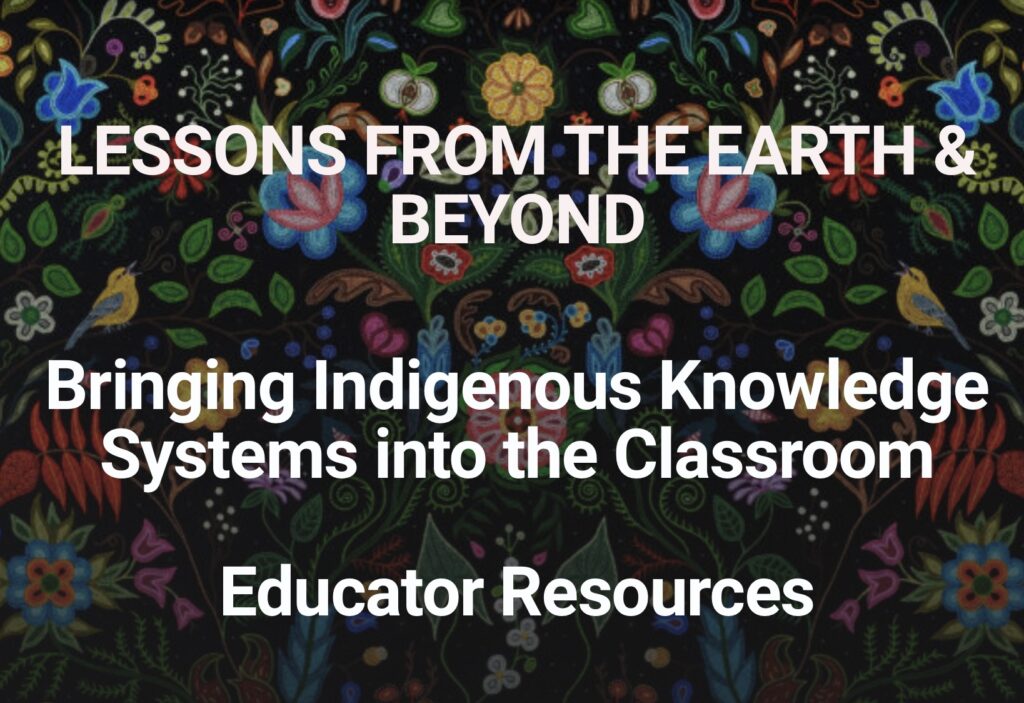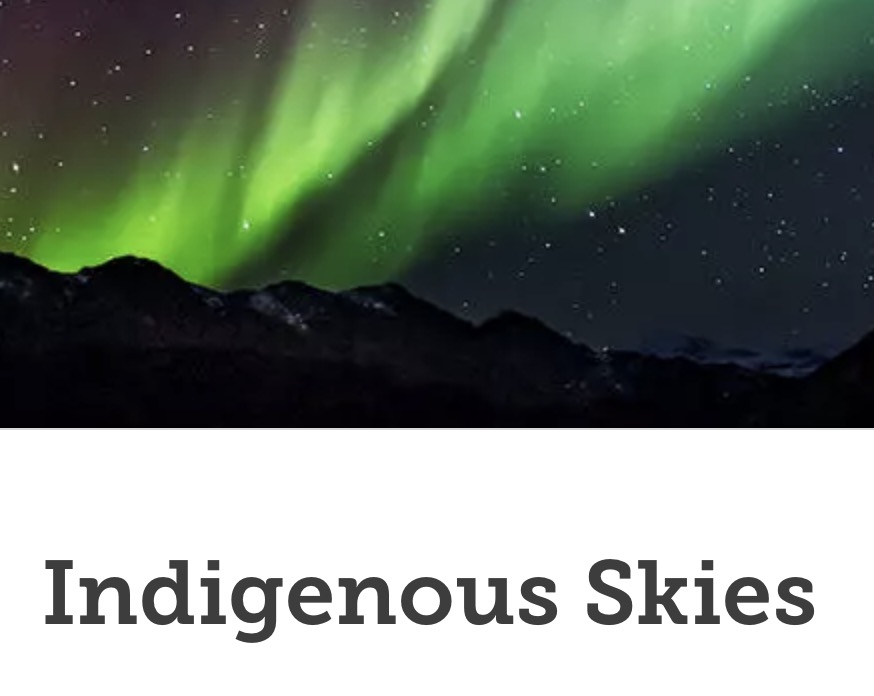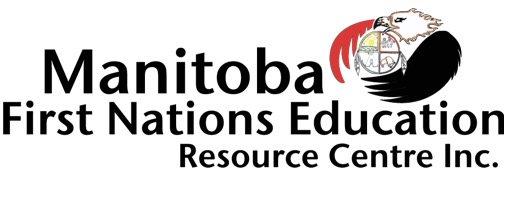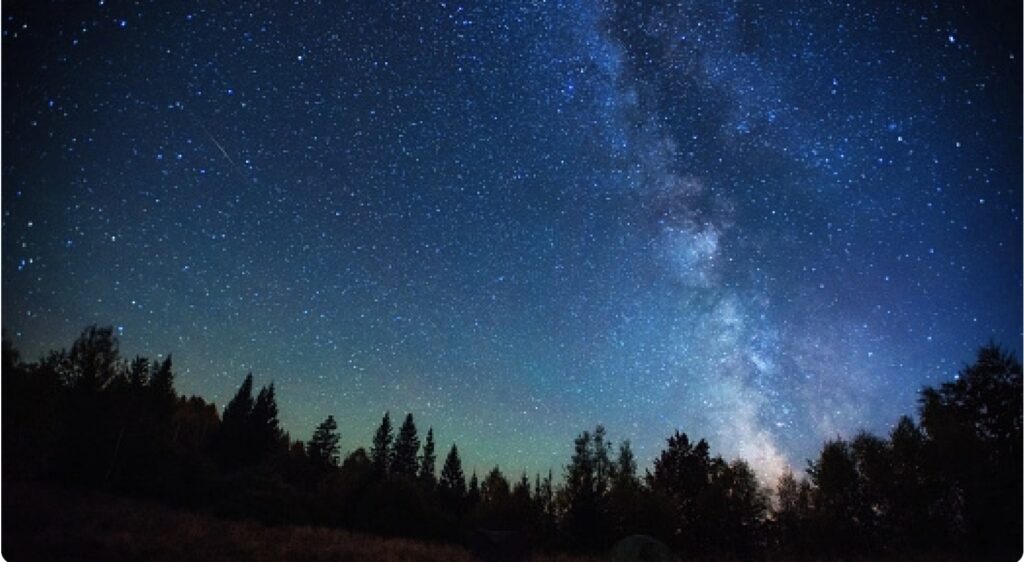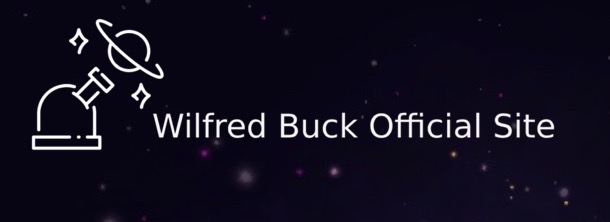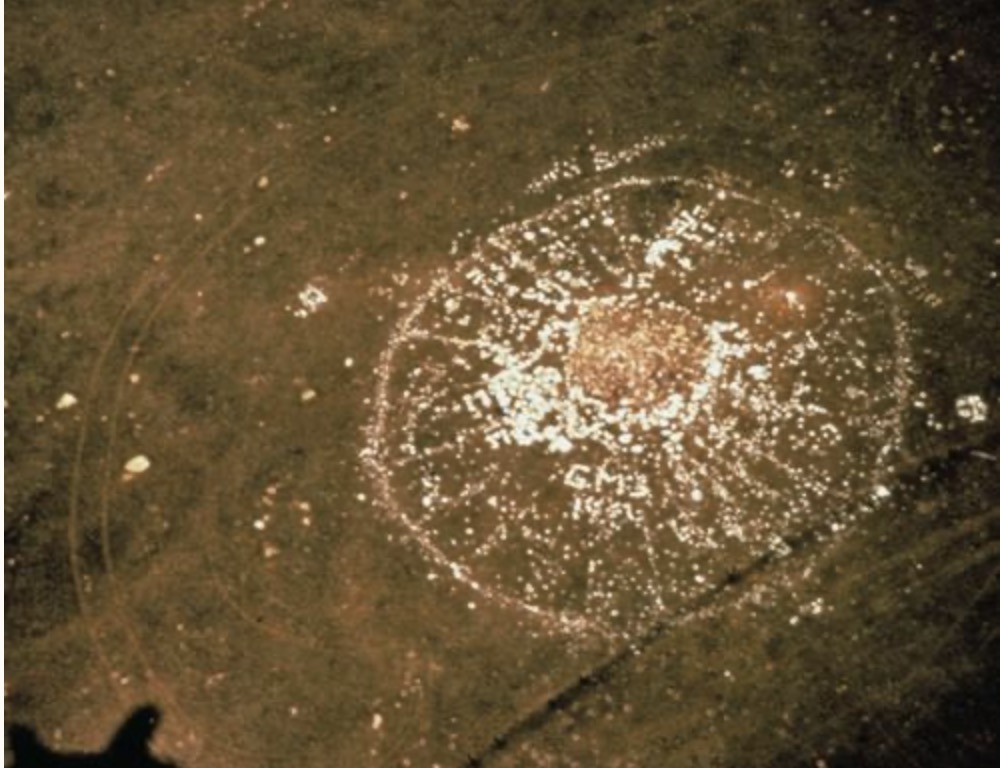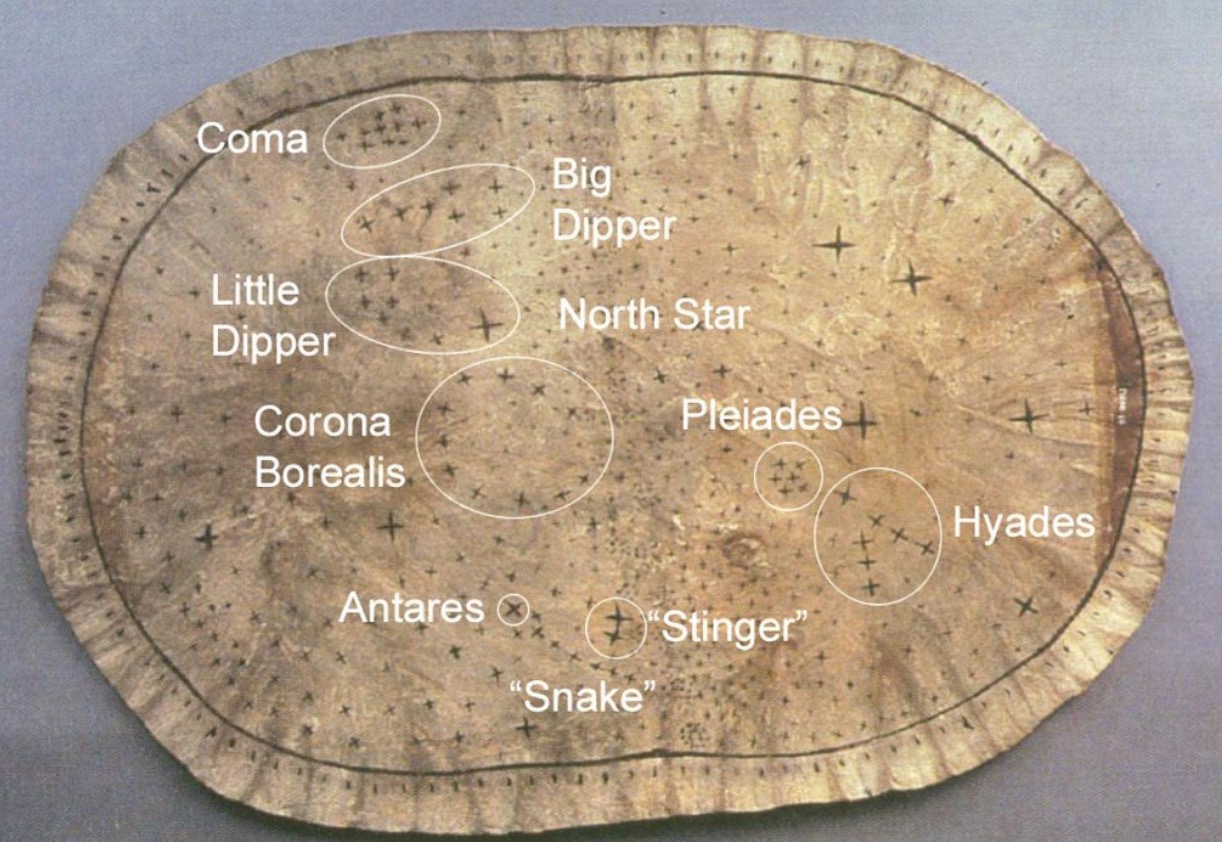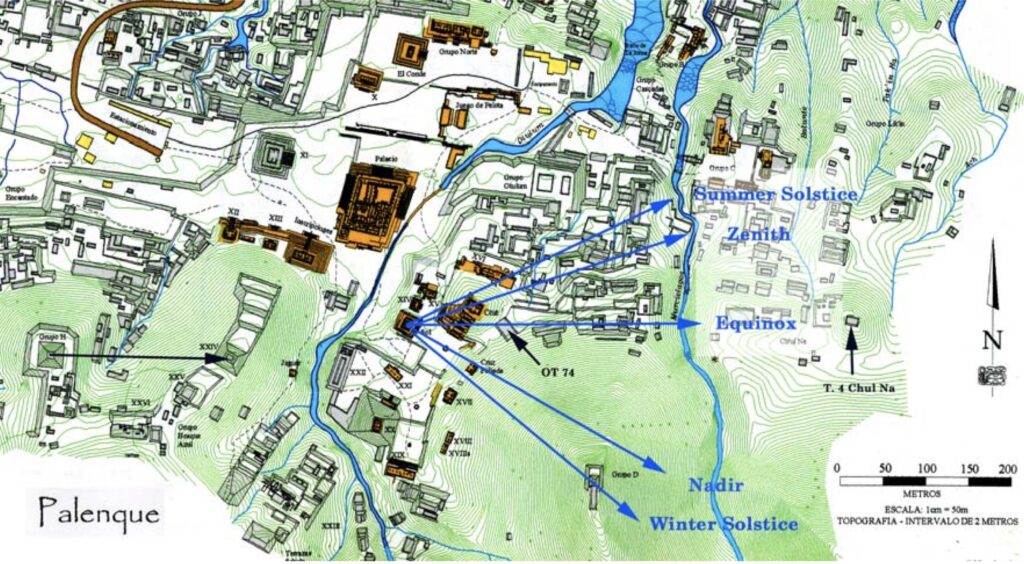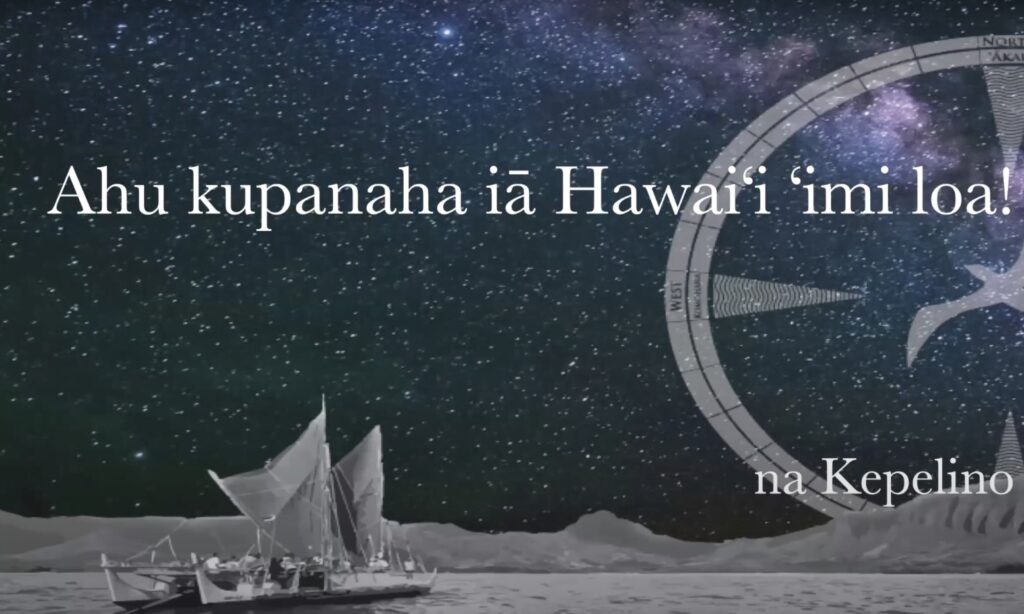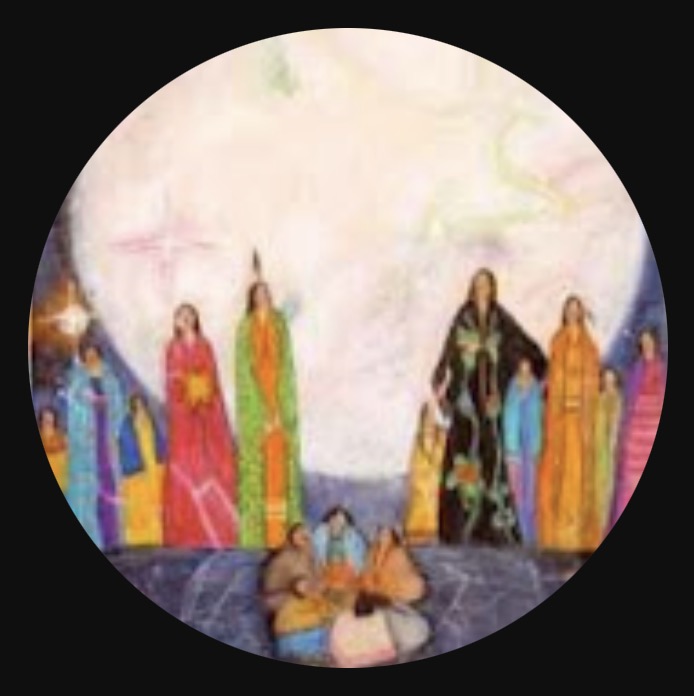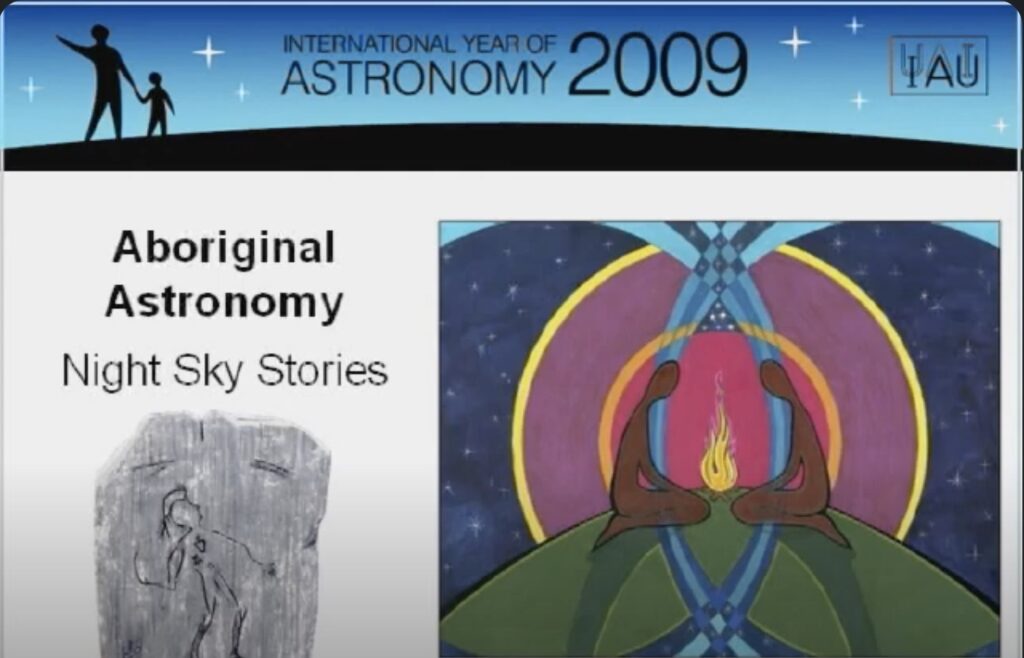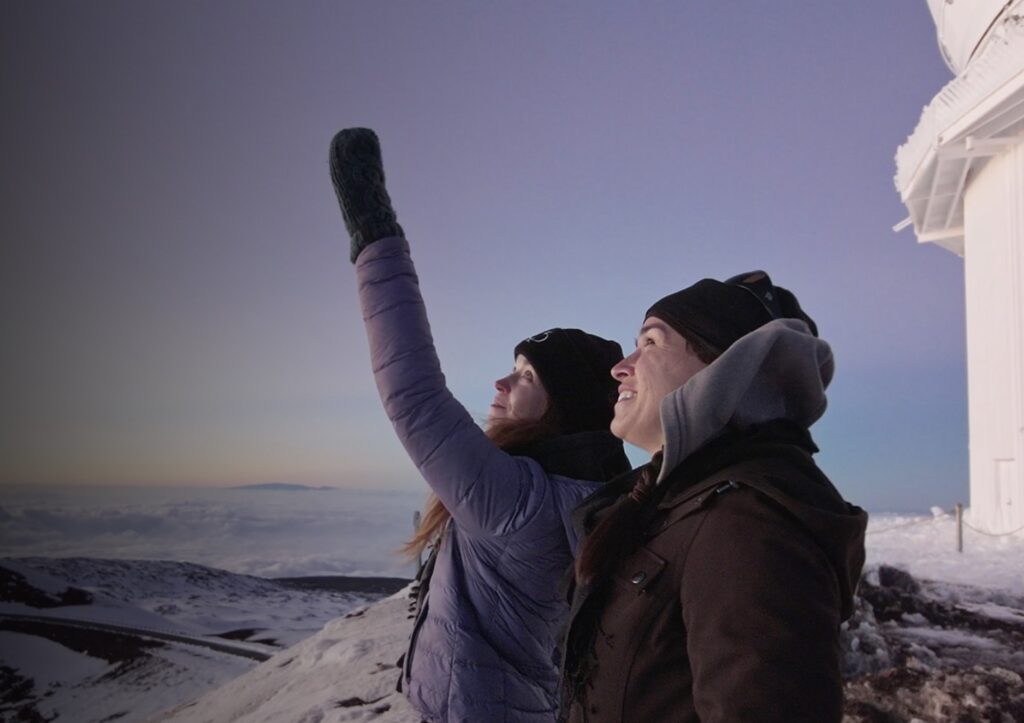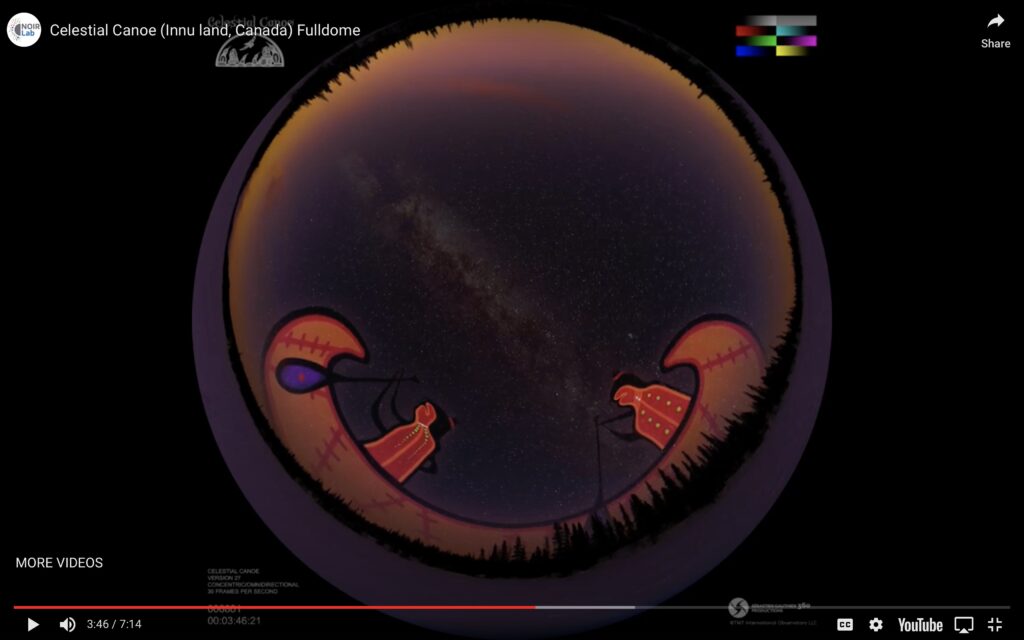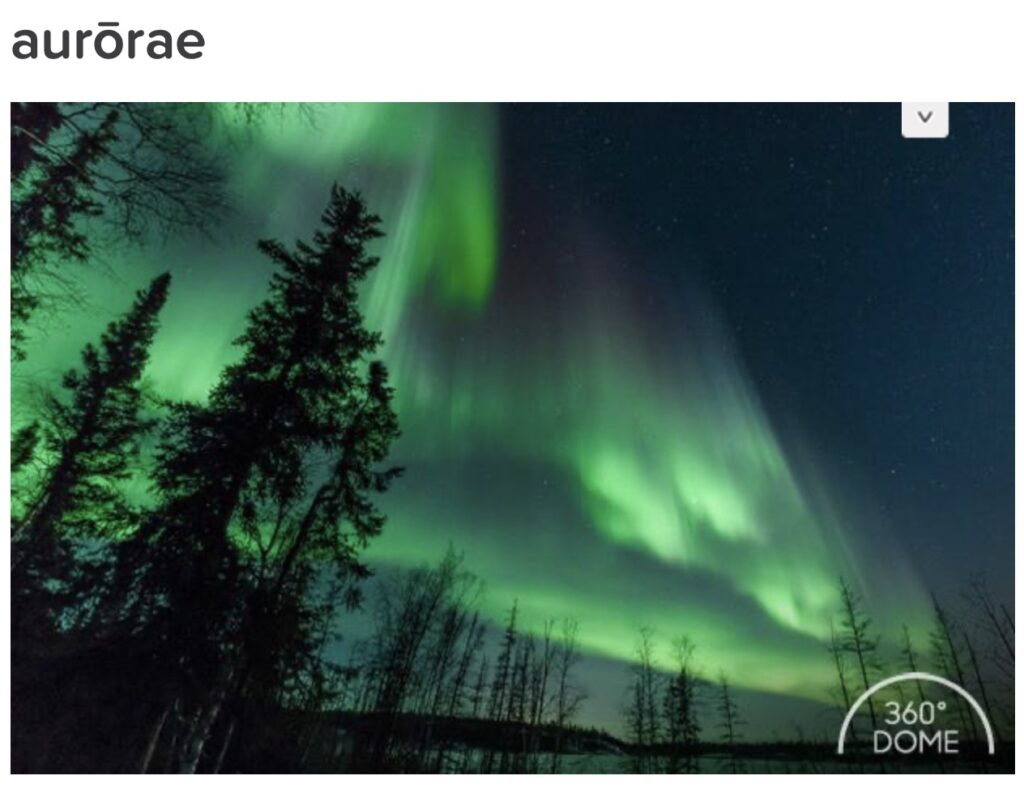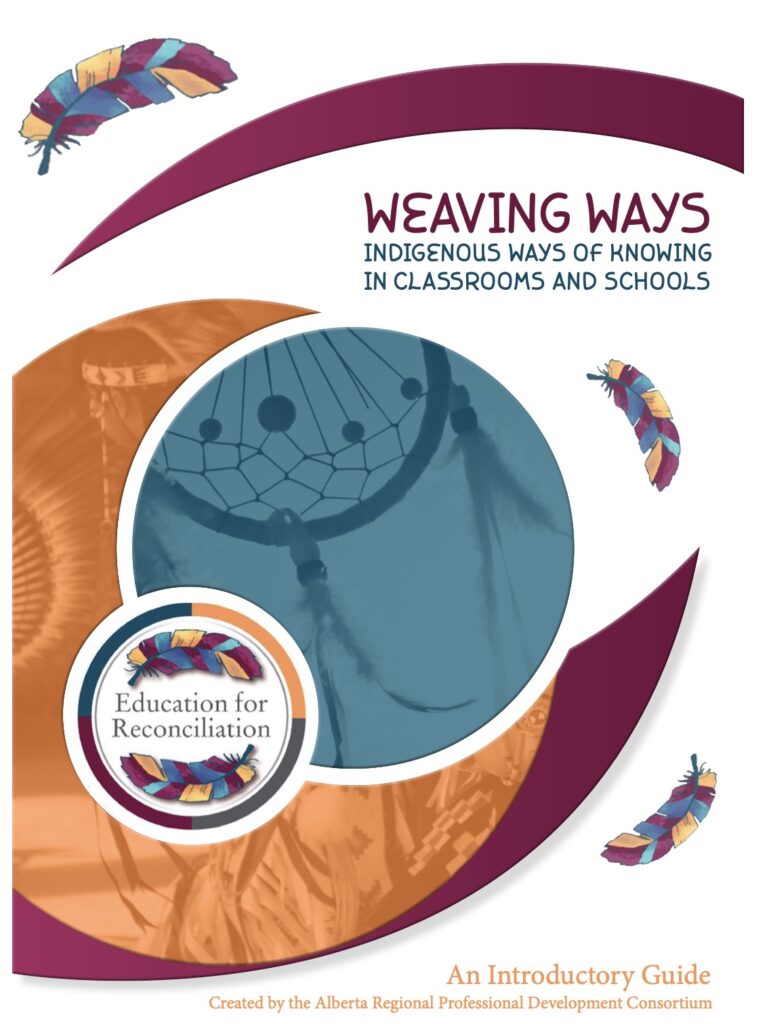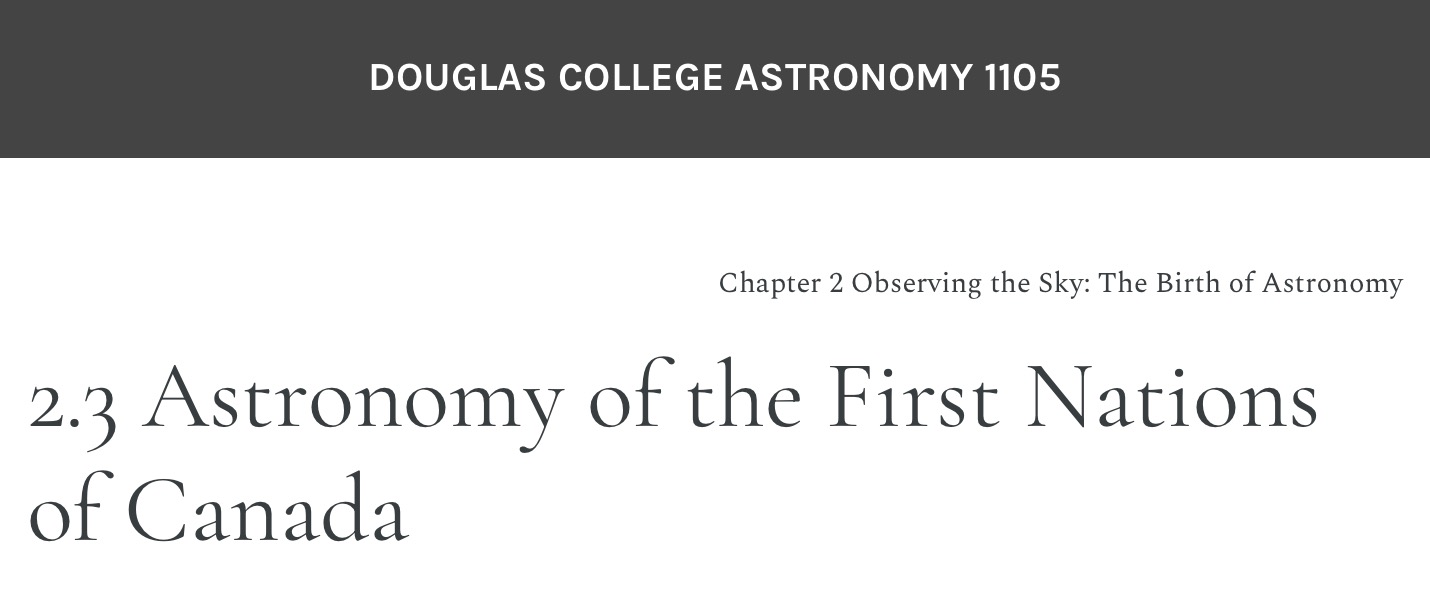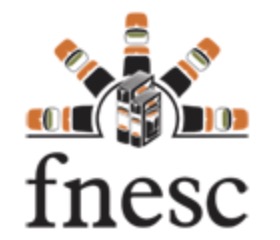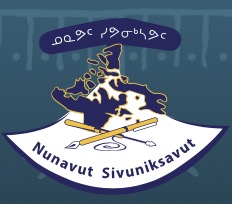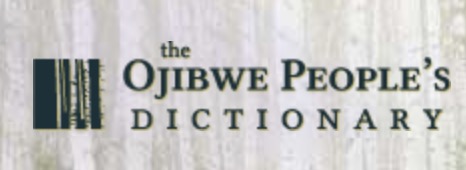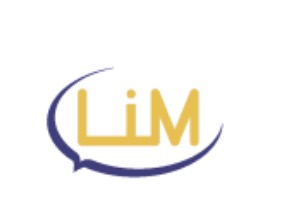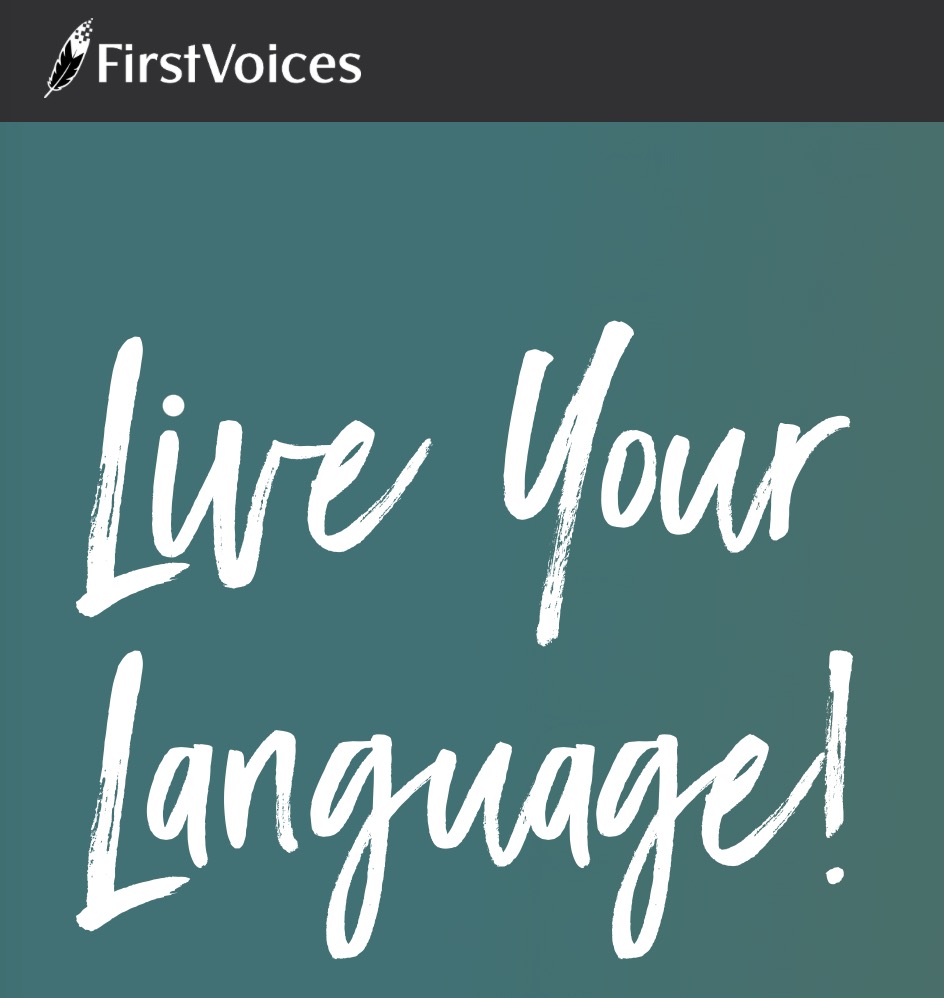The resources presented here are not a complete overview of everything that is available for you to get familiar with Indigenous astronomy and engagement initiatives. They can be used as a starting point in your journey to make astronomy more inclusive.
Books
The whole book is worth reading to get a deep understanding of ancestral knowledge in the region of Lake Superior. Chapiter 8 intitled Talking Sky is of particular interest.
This book traces Wilfred Buck’s path to becoming a teacher in Indigenous cosmology and astronomy. Cree of Opaskwayak.
This book brings together 23 of these legends from all over the world: from Ancient Greece to North America, Egypt, China, India, and the South Pacific.
Websites
Lessons from the Earth & Beyond
This resource was developed in collaboration with elders and member of multiple nations and cover many topics from K3-10. Many videos and presentations are included as well as activities and lesson plans.
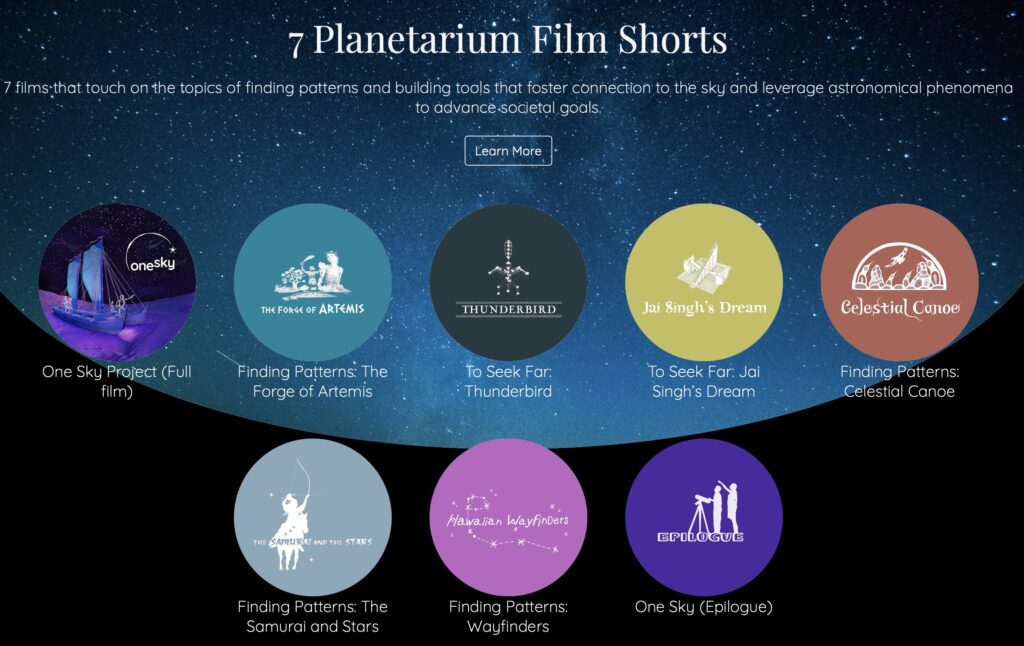
The One Sky Project is an international collaboration focused on increasing understanding about cultural and indigenous astronomy through planetarium film shorts. The content is free and available in many formats.
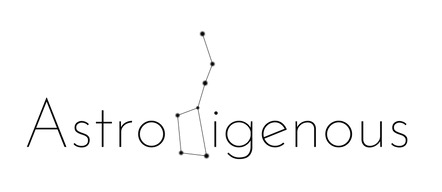
Astrodigenous is a collective of educators, scholars, astronomers, and students looking to disrupt the colonial education system by providing resources and tools for educators to incorporate Indigenous Astronomy Knowledges (IAK) in their classrooms.
Initiative for the Rothney Astrophysical Observatory including context, videos, and sky stories from many communities from Treaty 7.

Designed by Annette S. Lee, the Native Skywatchers initiative seeks to remember and revitalize Indigenous star and earth knowledge.
A presentation by science facilitator Wilfred Buck that teaches about the night sky from a First Nations perspective.
Wilfred Buck present many content from is decades long work on Indigenous Astronomy. Books, presentations, star stories, images and more.
Resources on Native Astronomy with a focus on the Pacific Territory
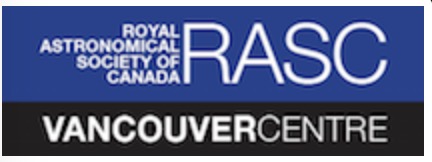
Links and references to First Nations Sky Knowledge
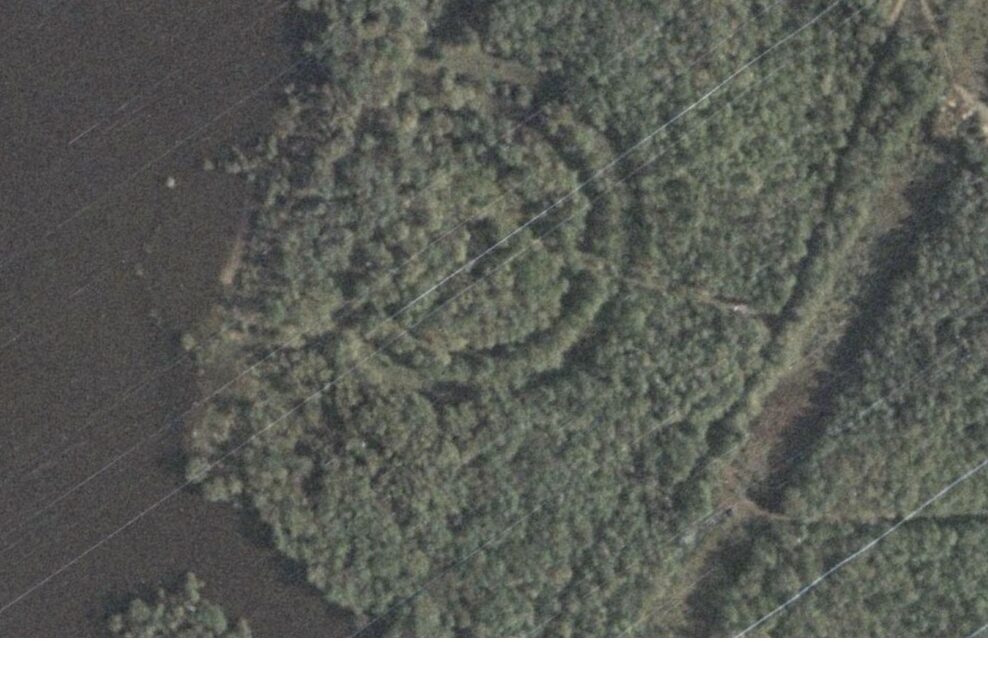
Located in a dense forested area at the confluence of the Ottawa and Carp rivers at the foot of Chats Falls, there lies a hidden 400ft diameter wheel aligned with the Summer Solstice
Many of these stone artifacts can be found across North America, principaly in Alberta. Astronomical alignments are associated with them.
Presentations
Seeing the Skies Through Navajo Eyes
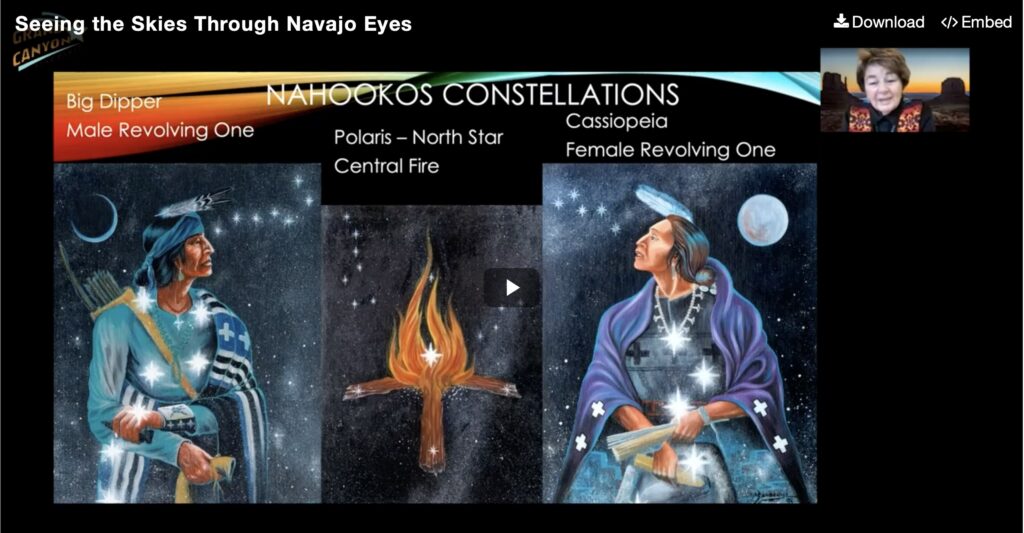
Nancy Maryboy, Adjunct Prof. Department of Physics and Astronomy at Northern Arizona University
Sense of Place: Indigenous Perspectives on Earth and Sky
Ka’iu Kimura, executive director of the ʻImiloa Astronomy Center
Muin and the Seven Bird Hunters
Mi’kmaq sky stories by Elder Lillian Marshall of Potlotek First Nation and Mi’kmaq Elder Murdena Marshall of Eskasoni First Nation.
Videos/Films
Wilfred Buck by the National Film Board of Canada
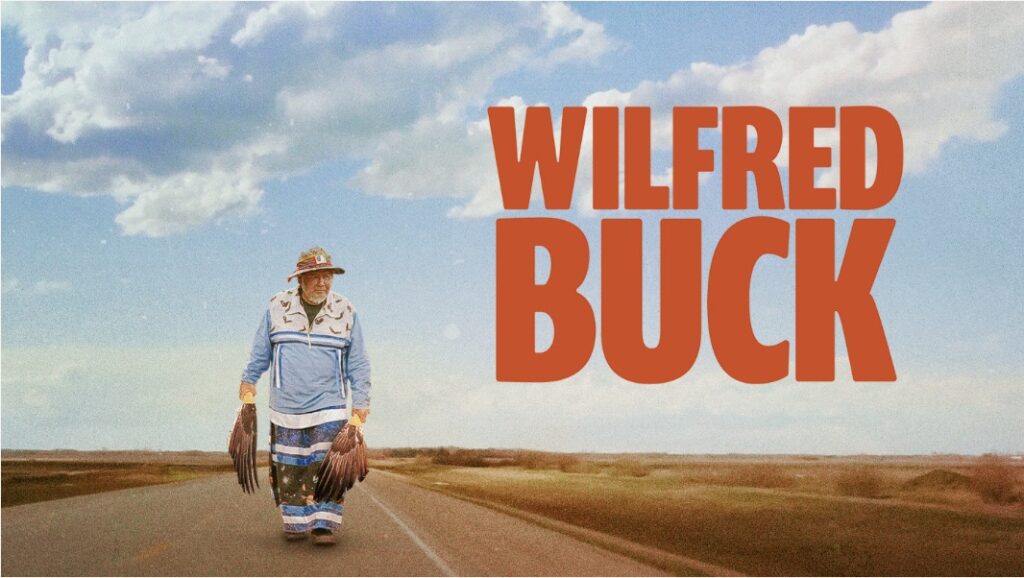
Wilfred Buck is an Ininiw (Cree) astronomer, author, educator, Knowledge Keeper and lecturer originally from Opaskwayak Cree Nation (OCN). He graduated from the University of Manitoba with two degrees in Education and has 25 years of experience as an educator, working with students from kindergarten to university.
North Star Webseries by the National Film Board of Canada
Laurie Rousseau-Nepton is a young, Quebec-born Innu astrophysicist who’s leading a massive research project at the Canada-France-Hawaii Telescope. Drawing on a worldview rooted in a love of nature, as well as her talents as a science communicator, she shares her passion for the study of celestial objects. The series comes with an educational guide for teachers.
Celestial Canoe from the One Sky Project
Innu, First People of what is now north-eastern Canada, watched the slow turn of a canoe in the sky, mirroring the change in seasons on land. This celestial canoe guided them through a particularly challenging part of the year.
Academic support for Indigenous Engagement
Did you know that some institutions offer support for Indigenous engagement? If not, here are some resources you can look for that might be of good help to support your initiatives.
First Nation’s House
First Nation’s Houses have the expertise to develop long lasting relationship with the communities and can guide you through the process. If your institution does not have a First Nation’s House, try contacting one at another institution nearby if it applies.
Indigenous Student’s Association
Student’s associations often provide support to faculty who would like to engage.
Elder in Residence and facilitators
A elder in resident and/or a mediator that support faculty and student in engaging with communities is often present in institution. If you plan to connect with a community, but do not know where to start, a mediator is ideal. They are usually affiliated to the First Nation’s House or the Indigenous Student’s Association.
Documents such as Protocol for Engaging with Elders
Some documents from different institution across Canada can be found here.
Resources for Educators
Resource Guide for Canadian Aboriginal Astronomy

This Resource Guide has been compiled by Prune Harris as part of the work of the Canadian Aboriginal Working Group for the International Year of Astronomy. The working group emerged by special request from the Canadian International Year of Astronomy National Steering Committee.
Sky Stories: A First Nations Journey Teacher’s Resources
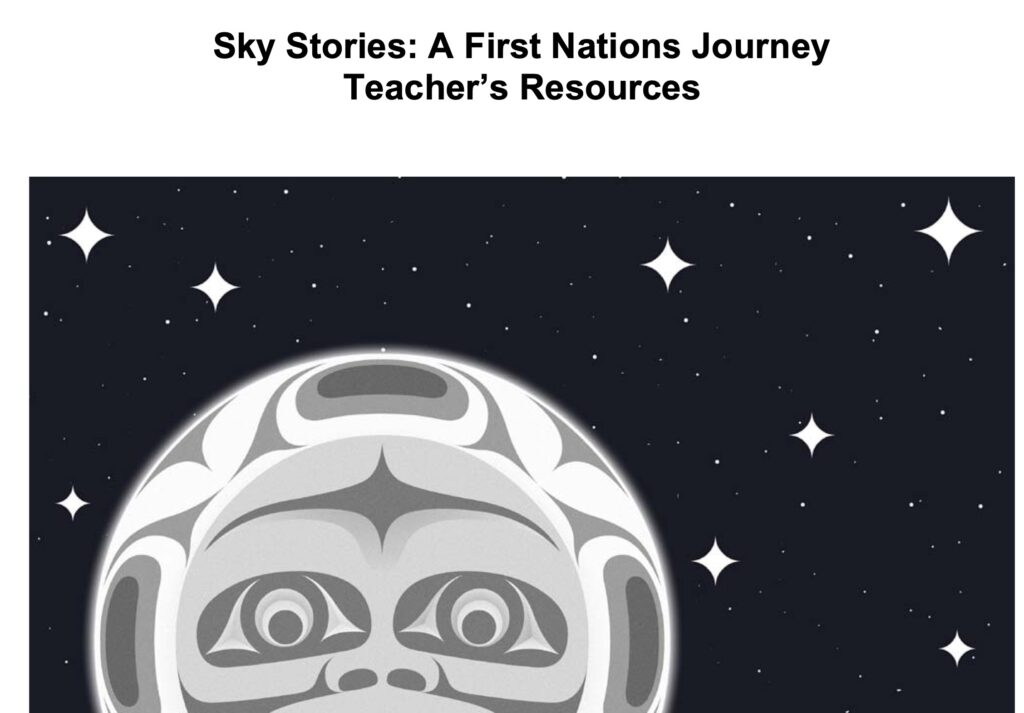
Document that outline resources for educators close to the Pacific coast.
Weaving ways is intended to be a complementary guide for educators who are deepening their foundational knowledge and educational approaches to foster reconciliation.
Course on Canadian Native Astronomy
Site containing resources related to indigenous Astronomy in Canada. Including an Annex.
Organizations

The Assembly advocate for education systems that support growth and lifelong learning for First Nations. The AFN’s Languages & Learning advocates to ensure that students actualize their inherent and Treaty right to a high quality, linguistically and culturally appropriate education to improve the lives of all First Nations people.
First Nations, Métis & Inuit Education Association of Ontario

The First Nations, Métis & Inuit Education Association of Ontario is a subject association for First Nations, Métis, and Inuit education in Ontario, Canada. We support and help all educators understand issues related to First Nation, Métis and Inuit Peoples in Canada as well as offer strategies for teaching this content to all learners.
First Nations Education Council

The First Nations Education Council is an association made of 8 First Nations of Quebec: Abenakis, Anishinabeg, Atikamekw, Wendat, Ilnuatsh, Wolastoqiyik, Mi’gmaq, and Kanien’kehá:ka. In addition to their Indigenous language, 12 of our member communities are French-speaking, and 10 are English-speaking.

Connected North provides live, interactive virtual learning experiences and access to educational resources for students and teachers in remote communities, supporting them where they live. Through the program, Indigenous students from Kindergarten – Grade 12 are offered unique opportunities to thrive.
First Nations Education Steering Committee
The First Nations Education Steering Committee (FNESC) is a policy and advocacy organization that represents and works on behalf of First Nations in British Columbia. FNESC has a mandate to support First Nations students and advance First Nations education in BC.
Manitoba First Nations Education Resource Centre

Established in 1998 by the Assembly of Manitoba Chiefs, the Manitoba First Nations Education Resource Centre Inc. (MFNERC) provides the province’s leading education, administration, technology, language and culture services to First Nations schools in Manitoba.
Alberta: Indigenous Education Specialist Council
The council strives to provide relevant, authentic, and authoritative resources and projects for you to explore along with your students. Our council aims to inspire and provide opportunities to have intentional conversations with teachers and students about the unique place, perspectives, and cultures of First Nations, Métis and Inuit peoples in our society.
Welcome to Nunavut Sivuniksavut and to our introduction of a unique post secondary program designed to empower Inuit youth. Through our demanding academic and experiential education program students embark on a life-changing journey of self-discovery and personal development.
Native Language Translations
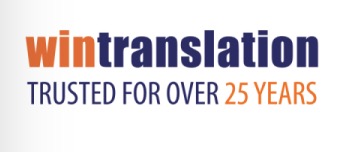
Wintranslation is one of the few professional companies providing translation services into Indigenous languages in Canada. Proud to provide translation services for 40 out of the 60+ Indigenous languages spoken in Canada.
Many online dictionaries are available online and can be used for small and quick translations. CAUTION: The result of the translation is rarely perfectly accurate, and should always be review by a native speaker if used to create content or teach in school. Nevertheless, the dictionaries are useful to get more familiar with the terminologies and meaning of words.
Languages in Motion provides translation services for Indigenous languages spoken in Canada. Translating materials into Indigenous languages will assist you in connecting with more people. Indigenous languages do not translate the same as others due to their complex morphology. Sometimes a sentence can be a 20 letter word!
Indigenous Languages revitalization platform
FirstVoices is a collaborative platform where Indigenous communities manage, curate and share their languages
